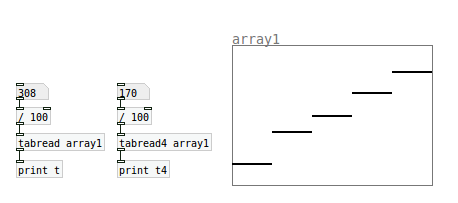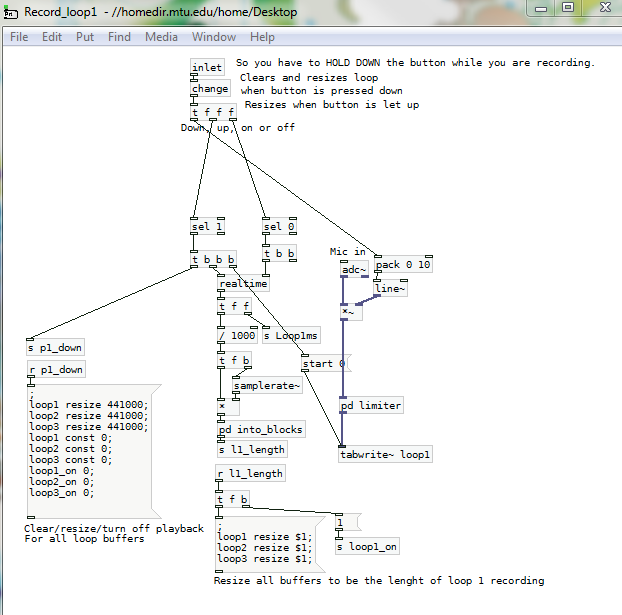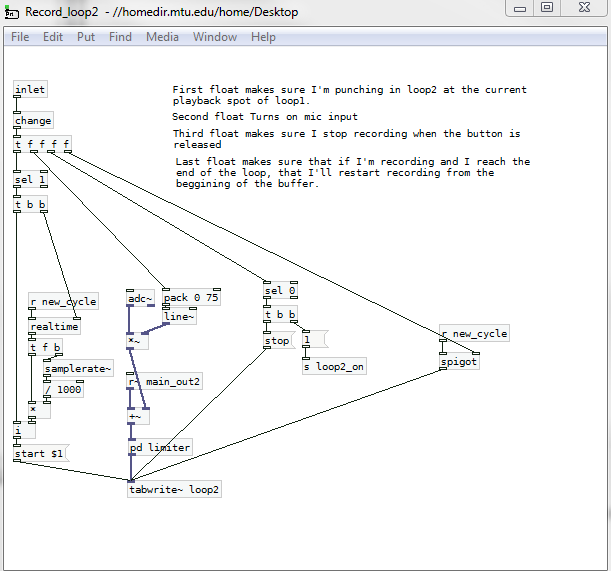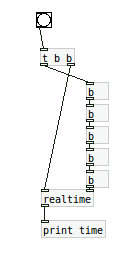@sglandry said:
Thanks for the patch. How does sending out multiple master_bang 's work? Does whatever loop you start playing first basically become the "master" track that controls all the other ones? Or is there some other global master bang logic that I'm not seeing.
If i remember correctly, I usually just set "track1" to be the "master track". I would record this track first, and however long it was (in ms) would be the length of the master loop. Whatever you decide is going to be the master loop should be the longest recorded sound, because when it repeats any other tracks that are longer will cut off and repeat as well (if you choose to sync them).
When the "master track" repeats, it sends a bang (via [s master_bang]) out to all the other tracks with the "sync_to_master" box checked (well, it gets sent to all tracks regardless, but only tracks that are synched let this bang pass through). The "sync_to_master" box essentially just controls the [multiplex] object, which switches between the sources of the bangs that tell the track when to repeat. You can have a slave track repeat when the master track repeats, otherwise you can just have it repeat itself asynchronously, or just manually when you click on the bang itself.
Whats the difference between [timer] and [realtime]? Do they essentially do the exact same thing?
As far as I know, [timer] measures logical time, and [realtime] measures elapsed real time. Someone smarter than me on here can tell you the difference.






